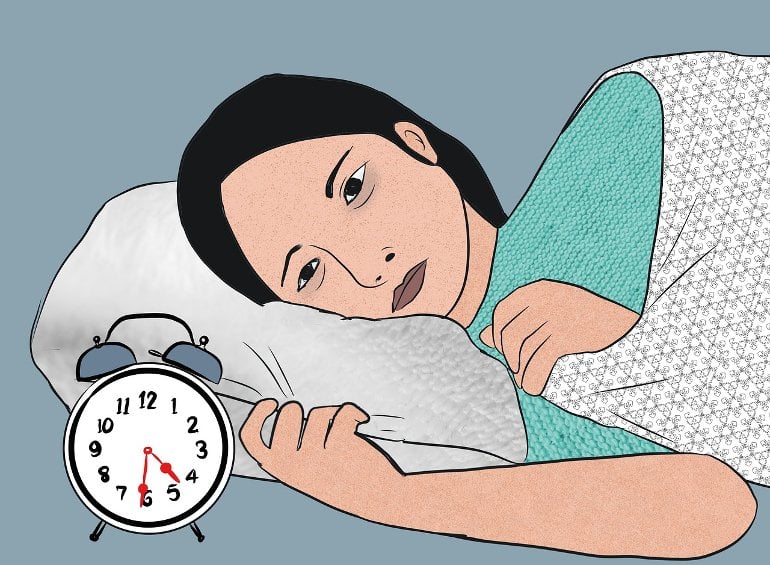Summary: Those who report trouble sleeping are at increased risk of poor cardiometabolic health problems which can lead to type 2 diabetes.
Source: University of South Australia
As the Christmas season starts to ramp up, University of South Australia researchers are reminding people to prioritise a good night’s sleep as new research shows that a troubled sleep may be associated with risk factors for type 2 diabetes.
In the first study of its kind, researchers found that people who reported trouble sleeping were on average more likely to have indicators of poor cardiometabolic health – inflammatory markers, cholesterol and body weight – which can contribute to type 2 diabetes.
In Australia, almost one million adults have type 2 diabetes. Globally, type 2 diabetes affects more than 422 million people.
UniSA researcher Dr Lisa Matricciani says different aspects of sleep are associated with risk factors for diabetes.
“Everyone knows that sleep is important. But when we think about sleep, we mainly focus on how many hours of sleep we get, when we should also be looking at our sleep experience as a whole,” Dr Matricciani says.

“How soundly we sleep, when we go to bed and get up, and how regular our sleep habits are, may be just as important as sleep duration.”
“In this study, we examined the association of different aspects of sleep, and risk factors for diabetes, and found a connection between those who had troubled sleep and those who were at risk of type 2 diabetes.”
The study assessed more than 1000 Australian adults* with a median age of 44.8 years. Researchers examined a range of sleep characteristics: self-report trouble sleeping, duration, timing, efficiency, and day-to-day sleep length variability.
“People who reported having trouble sleeping were also more likely to have a higher body mass index, as well as blood markers of cholesterol and inflammation,” Dr Matricciani says.
“When it comes down to the crunch, we know we must prioritise our sleep to help stay in good health. More research is needed, but as this study shows, it’s important to think about sleep as a whole, not just as one aspect.”
About this sleep and diabetes research news
Author: Annabel Mansfield
Source: University of South Australia
Contact: Annabel Mansfield – University of South Australia
Image: The image is in the public domain
Original Research: Closed access.
“Multidimensional Sleep and Cardiometabolic Risk Factors for Type 2 Diabetes: Examining Self-Report and Objective Dimensions of Sleep” by Lisa Matricciani et al. Science of Diabetes Self-Management and Care
Abstract
Multidimensional Sleep and Cardiometabolic Risk Factors for Type 2 Diabetes: Examining Self-Report and Objective Dimensions of Sleep
Purpose:
The purpose of the study was to determine the association between objective and self-report measures of sleep and cardiometabolic risk factors for type 2 diabetes.
Methods:
This study examines data on Australian adults, collected as part of the Child Health CheckPoint study. Sleep was examined in terms of actigraphy-derived sleep duration, timing, efficiency and variability; and self-report trouble sleeping. Cardiometabolic risk factors for type 2 diabetes were examined in terms of body mass index and biomarkers of inflammation and dyslipidemia. Generalized estimating equations, adjusted for geographic clustering, were used to determine the association between measures of sleep and cardiometabolic risk factors.
Results:
Complete case analysis was conducted for 1017 parents (87% mothers). Both objective and self-report measures of sleep were significantly but weakly associated with cardiometabolic risk factors.
Conclusion:
Both objective and self-report measures of sleep are significantly associated with cardiometabolic risk factors for type 2 diabetes. Self-report troubled sleep is associated with poorer cardiometabolic health, independent of actigraphy-derived sleep parameters.







